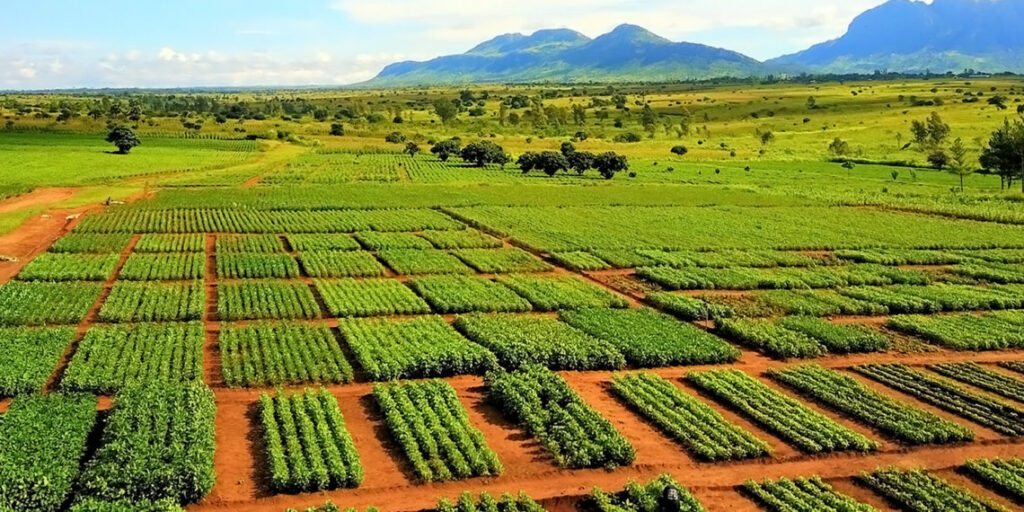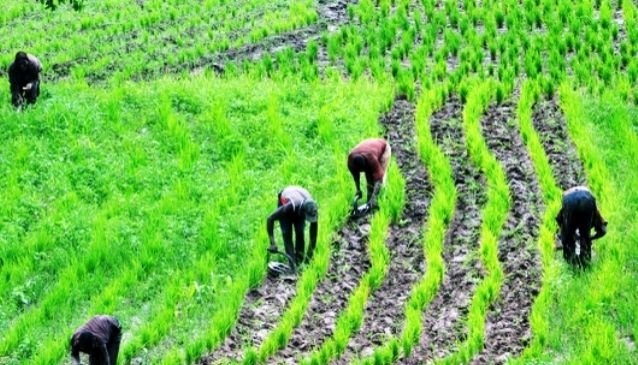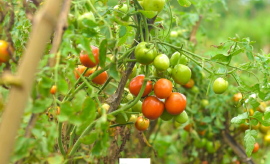
Can a deliberate commitment to farming foster a sustainable future in agricultural productivity?
Everybody seems to be conversant with the word “Agriculture.” Still, only some understand the potency, value risks, and dangers attributed to a lack of commitment to farming for a sustainable future. Agriculture is the planting of crops and the rearing of animals for human consumption. Subsistent Agriculture refers to cultivating plants and keeping livestock for family consumption and a few to sell. At the same time, Commercial Agriculture is growing plants and rearing animals beyond consumption, mainly for business purposes. Commercial Agriculture has advanced with mechanized equipment for enormous yields.

A deliberate commitment to farming activities can foster and develop sustainable agricultural outcomes in the future. Still, insufficient food production and availability, climate change, disasters, displacement, and an increasing global population are among the many challenges facing families and communities presently. By focusing on sustainable practices such as crop rotation, organic farming, water conservation, and responsible pesticide use, countries can ensure long-term food security, environmental health, and economic stability within their agricultural sectors. Over the years, science and farming practices have proven effective in achieving sustainability, especially when used simultaneously.
Sustainable agriculture practices can foster productivity
Over the years of science and practice, the following farming practices have been proven to be effective in meeting society’s present food and agricultural needs without hampering the ability of the current or coming generations to meet their needs. Such practices include
- Rotating crops and embracing diversity: Planting various crops might have many benefits, including healthier soil and improved pest control. Crop diversity practices include growing a mix of crops in the same area and complex multiyear crop rotations.
- Planting cover crops and perennials: These are done during off-season times when soils might otherwise be left bare, while perennial crops keep the soil covered and maintain life in the roots year-round. These crops preserve and build soil health by preventing erosion, replenishing soil nutrients, and controlling weeds, reducing the need for fertilizers and herbicides.
- Decreasing or preventing tillage. Traditional plowing prepares fields for planting and prevents weed problems, but it can lead to soil loss. No-till or reduced-till methods, which involve inserting seeds directly into undisturbed soil, can reduce erosion and improve soil health.
- Implementing integrated pest management (IPM). Diverse methods, including mechanical and biological controls, can be applied systematically to keep pest populations in check while minimizing the use of chemical pesticides.
The threat of hunger and food insecurity has thrived as a global concern

The USDA defines food insecurity as a lack of consistent access to enough food for every person in a household to live an active and healthy life. Although this can be a temporary situation for a family, it might not be obvious or last a long time if not addressed promptly. Several families facing food insecurity rely on their own food production and income from farming and are stressed by an escalation of weather-related disasters due to climate change. Future in the agricultural system. Food insecurity is one way we measure and analyze how many people can’t afford food in society. Below are the impact and effects of food insecurity:
- Food insecurity can result in serious health problems when people have to choose between spending money on food and healthcare facilities
- Food insecurity can affect a child’s mental development, leading to poor performance in academics and overall development.
- Food insecurity can lead to difficult decisions on types of housing and ways of socializing. It should be clearer that food insecurity is real and has come to stay if no deliberate act fosters a sustainable future in agricultural productivity.
Agriculture plays an important role in the economy and community.
Nigeria’s agricultural sector plays a crucial role in its economy. This employs a significant portion of the population and contributes to its GDP even when neglected by other sectors believed to be more profitable. As a result of the agricultural sector’s inability to provide sufficient food for the fast-growing population, the country just has to import most of its food, leading to an increase in the problems of agriculture in Nigeria.
Moreover, this sector has faced challenges such as low productivity, inadequate infrastructure, climate change impacts, unsustainable practices, and lots more. By making a defibrate effort to prioritize sustainable farming, Nigeria can address these challenges and pave the way for more prosperous and resilient agricultural productivity in the near future, which is a task for all and sundry. A thriving agricultural sector can contribute significantly to economic growth by generating export revenue and reducing the need for food imports. This can help strengthen Nigeria’s economy and improve its trade balance. Also, government policies that incentivize and support sustainable farming practices, such as providing subsidies for eco-friendly inputs or establishing land-use regulations, can accelerate the transition to a more sustainable agricultural system.
Hope for agriculture through a collaborative effort.
There is a saying that when there is a will, there is a way; it lies in our hands as good citizens of our beloved country to help foster a sustainable future in agricultural productivity. These are ways to help revitalize the hope of a dying Nigeria;
- Technology Integration: Integrating modern technology into farming practices can further enhance sustainability. Precision agriculture, remote sensing, and data analytics can help farmers make informed decisions, optimize resource allocation, and reduce waste.
- Knowledge Transfer: Investing in education and training programs for farmers on sustainable practices can lead to the widespread adoption of these methods. Government agencies, NGOs, and agricultural institutions can play a vital role in providing the necessary training and resources.
- Collaboration and Partnerships: Collaboration among stakeholders, including farmers, researchers, policymakers, and private sector players, is essential to driving the adoption of sustainable practices. Public-private partnerships facilitate knowledge sharing and resource allocation.
Misconceptions of Agricultural practices
From the findings, young people are usually not interested in this field of work, in large part due to their perception
- Agriculture is obsolete and unprofitable; the image of agriculture has traditionally been more about subsistence food production for family consumption. It has not been regarded as a business or profitable venture
- Agriculture is being made to seem like hard labor at the subsistence level. At the same time, Commercial Agriculture is also made to look like a rich man’s venture, which is capital-intensive and requires lots of patience and commitment.
- Agricultural activities occur in rural areas, away from modern social amenities. Nobody would want to remain in the village without electricity, telecommunication facilities, or a good road
- African youths don’t have deep knowledge of agribusiness, but the mindset of how people labor and work look dirty on farms as the only way agriculture works makes it look disgusting
- A negative image formed from tales of predecessors, with a hoe on one shoulder & a cutlass on the other, bent at the waist, from decades of hard, unprofitable labor.
The Good News has come to stay, thus improving productivity in agriculture
Right away, African youth are taking up agriculture as a profession, seeing its potential, and implementing education to make it easier to practice; until agriculture is rebranded and repackaged in Nigeria as a corporate business, youths may not seem interested in its potential.
To engage the youth in agribusiness, the International Institute of Tropical Agriculture (IITA) established IITA Youth Agripreneurs (IYA) in 2011 to change the orientation and get more youths to participate in agriculture. The group has enterprising young individuals coming from diverse disciplinary backgrounds. It aims to show young Africans that agriculture can be an interesting and economically rewarding business to venture into and convince investors to partake in Africa’s youth by relating their success stories. Kudos to technology, social media, and the digital world. Many youths are now leveraging and developing an interest in agriculture and wish to find a place in the sector, either as direct farmers or as investors in one Agribusiness venture or another. Youth should know that agribusiness is not won based on strength or intelligence but on good strategy and adequate planning. We must be deliberate in making this a reality to foster a sustainable future in agricultural productivity.
I want to draw the curtain by saying that an economically and socially sustainable agriculture system enables farms of all levels to be profitable and contribute to their local economies. Such a system supports the coming generation of farmers, deals fairly with its workers, provides access to healthy and quality food, and prioritizes people and communities over organizational interests.
There is a need to be intentional when delving into Agriculture, and that is why we are readily available at your service to provide the necessary consultation and information for a productive agricultural practice. Many people have run into debt and errors because of their enthusiasm for agriculture but lack the necessary knowledge and information. Contact Green Development and Agro Allied Services on 07039290924 or info@greendevelopment.org.ng. Green Development and Agro Allied Services, your best plug for AGRIBUSINESS SUCCESS…..